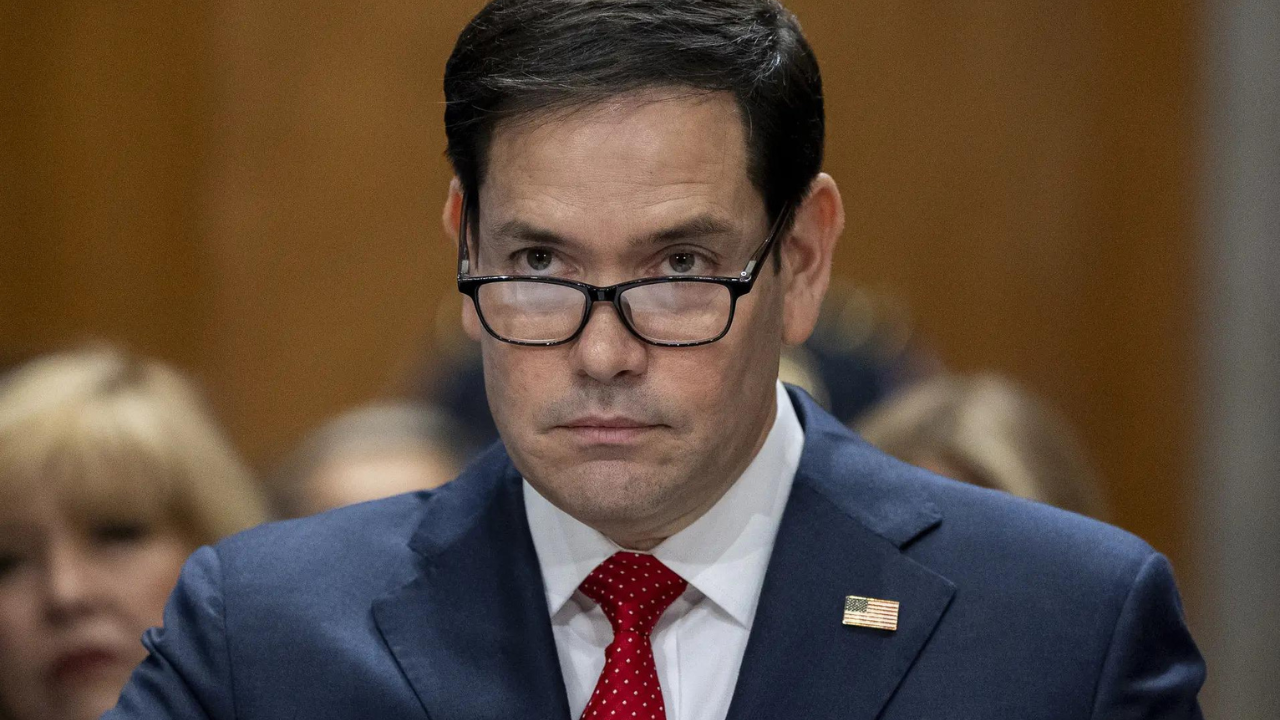Marco Rubio Confirmed as Secretary of State: A New Era in US Foreign Policy?
Get ready for a whirlwind of change in US foreign policy because Marco Rubio, the man known for his hawkish stance on China and sharp wit in the Senate, is officially the new Secretary of State! His unanimous confirmation marks a significant shift, leaving many wondering – what does this mean for America’s global standing? Is this the start of a new era of international relations? Buckle up, because this article will unravel the mysteries surrounding this monumental appointment.
Rubio's Rise to the Top: From Senator to Secretary of State
Marco Rubio's journey from Senator to the nation's top diplomat is nothing short of extraordinary. A son of Cuban immigrants, his path is a testament to the American dream. His career trajectory, from a young lawmaker rising through the ranks to becoming a key figure in foreign policy debates, has been captivating. His background brings a fresh perspective to the role of the Secretary of State, which is unprecedented in American history, making his confirmation a landmark achievement for Latino representation in the nation's highest diplomatic office. His impressive experience and extensive knowledge have placed him at the forefront of foreign policy discussions.
Rubio's Stance on China: A Hawk Takes Flight
Rubio has consistently demonstrated a tough stance on China, raising alarms about the nation's growing influence on the world stage. This has naturally garnered a lot of attention and led to discussions regarding potential escalations or conflict resolution strategies, and his future strategies regarding the United States' approach to the relationship are already being keenly anticipated by both domestic and international audiences. Many political observers are looking at how his policy might impact ongoing negotiations.
Balancing International Engagement with National Interests
Despite his hawkish views on China, Rubio also champions American global engagement and aims for a strategic balance that places both American interests and diplomacy at its heart. It would be an approach that recognizes the crucial role of international relations whilst safeguarding the best interests of the nation. In fact, many consider his nomination as an affirmation of the significance of diplomacy in today's global politics, particularly during times of geopolitical tensions.
Beyond China: A Multifaceted Foreign Policy Agenda
Rubio's foreign policy focus is broad, extending far beyond China. His attention to detail and engagement have covered a wide spectrum of concerns. He plans to address various geopolitical issues affecting global dynamics and alliances, signaling that a diverse set of policies is coming into play. Here is an example of what can be expected to dominate his time as the new Secretary of State: He has expressed concerns about the unbalanced US relationship with China, along with the need to protect American economic and national security interests. He advocates for a more nuanced and assertive approach towards China while simultaneously reaffirming the need for continued diplomacy to balance relations. His opinions have captured international media coverage and are shaping expectations surrounding his administration's foreign policy plans.
Middle East Policy: Continuity and Change
The Middle East remains a significant area of interest and concern, particularly in terms of ongoing conflicts and collaborations. With America's continued presence and investment, expectations are high regarding the direction of US foreign policy in the region under Rubio's leadership. His opinions will dictate the way alliances are forged and will directly impact efforts at de-escalation and stability-building across a number of flashpoints in the region, including continued support to Ukraine in the fight against Russian aggression, and collaboration with neighboring states in promoting peace-building initiatives across multiple regional theatres. Rubio, echoing comments made by his predecessor, Antony Blinken, wants to emphasize continuous collaboration and dialogue between global leaders.
The Future of US Diplomacy
Rubio's appointment symbolizes a critical juncture in US foreign policy. He carries the burden of both upholding traditional values and adapting to emerging challenges in the international arena. He wants to maintain the importance of strong relationships abroad whilst navigating evolving geopolitical relationships around the world.
The Senate Confirmation: A Smooth Sail?
The Senate's swift and unanimous confirmation of Rubio was noteworthy, hinting at bipartisan support. While political differences will invariably remain, this consensus suggested a potential readiness to collaborate on issues of national importance, underscoring that areas of agreement and unity outweigh political conflicts and personal beliefs.
Implications of Bipartisan Support
The level of cooperation shown suggests that effective policies might arise from his approach, potentially minimizing political obstructions and ensuring a more swift and streamlined decision-making process. Although this cooperation remains unprecedented in such times of political polarization, some remain skeptical and anticipate further challenges ahead for Secretary of State Rubio.
Take Away Points
- Marco Rubio's confirmation as Secretary of State marks a new chapter in US foreign policy.
- His focus on China and his views on maintaining diplomatic engagements signals a complex foreign policy agenda.
- The unanimous Senate confirmation reflects a degree of bipartisan support and anticipation of diplomatic solutions.
- His position and experience bring a historical representation of diversity within this elite office.




